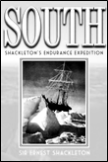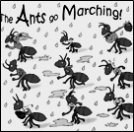
When was the last time that you dialed a phone number from memory? It probably depends on how long you’ve been using
Some professionals like Jim Kwik, an expert in memory improvement and optimal brain performance, are taking a closer look at this effect. Kwik describes digital dementia like this:“...we’re
The seriousness of overuse becomes
First, monitor your cellphone use. Keep downloading applications like Forest or Checky. Then cut back on any
Determine
2 . 
It could be said that the age of adventure peaked with Sir Everest Shackleton the moment his ship, the Endurance, become hopelessly locked in ice on its way to Antarctica in January 1915. For ten months the 28 men aboard Shackleton’s ship waited and prayed for ice to break. When it finally did, the Endurance sank, leaving the crew homeless and adrift on a sea of ice in one of the world’s most dangerous environments.
In January 2000 a luxury ocean liner found itself similarly trapped in the cold waters off Antarctica. Argentine authorities sent off an icebreaker straight away from the nearest naval base, and in 24 hours, all 176 passengers and crew were free. The tour company’s spokesperson spun the potential disaster as a value-added reward in extreme travel. “The people on board are looking at this as sort of a great adventure,” she said.
Ever since Jon Krakauer’s book Into Thin Air made Everest a household name, the subculture of adventure has blown up like a Himalayan avalanche(雪崩) into public consciousness. Magazines promise “extreme” content, television, offers adventure programs, and the growing collective fascination with adventure has produced a flow of published accounts about the world’s greatest adventurous journey. Nowadays more and more people are interested in adventure and this mass appeal makes good business sense. Today the only thing blocking a would-be adventurer’s passage to Antarctica is the cost---- which typically runs well over $10,000.
Despite very different implications, adventure was just as popular in Shackleton’s time. He has little trouble filling the Endurance----5,000 men are said to have responded to his recruitment(招募) notice: “Men wanted for risky journey. Small wages. Bitter cold. Long months of complete darkness. Constant danger. Safe return doubtful.”
After five months drifting on ice, the crew were forced to take to their lifeboats to Elephant Island. Reaching the wasteland, Shackleton went on with one lifeboat and five of his best men 1,300 kilometers across the bone-chilly Scotia Sea to South Georgia Island. Shivering with cold, dressed in rags, Shackleton marched into a whaling station and set about organizing a rescue expedition to Elephant Island. Almost two years after becoming shipwrecked on ice, Shackleton picked up his crew. “Not a life lost, and we have been through hell,” he remarked earnestly.
1. We can learn from the first sentence of this passage that _______.| A.the age of adventure began with the ship Endurance trapped in ice |
| B.Shackleton’s adventure marked the highest point of pure exploration |
| C.the age of adventure ended with the ship Endurance trapped in ice |
| D.Shackleton’s adventure predicted that the golden age of exploration was approaching |
| A.summed up | B.judged | C.boasted about | D.referred to |
| A.the media have got interested in the topic of adventure |
| B.the costs of extreme travel have gone up |
| C.Everest has got its name known to Europe |
| D.people have got fascinated by Himalayan avalanches |
| A.Shackleton’s adventure lasted longer then any other adventure nowadays |
| B.no one was missing during Shackleton’s adventure |
| C.Shackleton’s adventure was entirely for the sake of adventure |
| D.Shackleton enrolled volunteers more easily |
A painter hangs his or her finished pictures on a wall, and everyone can see it. A composer writes a work, but no one can hear it
Singers and instruments have to be able to get every note perfectly in tune. Pianists
The problem
Technique is of no use unless it is combined with musical knowledge and understanding. Great artists are those who are so thoroughly at home in the language of music
4 . 
The idea of using radio or wireless to broadcast to audiences was formed in 1916 by a president of the American Marconi Company, David Sarnoff. His superiors were doubtful about his idea to “make radio a household cause, so that by purchase of a ‘radio music box’, the audience could enjoy lectures, music performance, etc.”
Four years later the American engineer Frank Conrad, an employee at W E Corp, attracted considerable attention when a local newspaper reported on the growing audience listening on crystal radio sets to his evening and weekend amateur broadcasts. A local music store had provided records to play on the Victoria, and Conrad and his family served as disc jockeys(唱片音乐播音员). Westinghouse vice president Harry Davis asked Conrad to build a more powerful transmitter(发射台)in time to announce the outcome of the next US presidential election. Conrad completed his assignment, and on November 2, 1920, station KDKA in Pittsburgh, Pennsylvania, broadcast the announcement that Warren G. Harding had been elected president. About 1000 people heard this first news broadcast.
Radio communicated news much faster than did newspapers, and because crystal sets were easy to build and inexpensive, radio expanded rapidly in the following years. To stimulate the sale of radio sets, equipment manufactures provided transmitting facilities. Singers, comedians, and entire orchestras volunteered their services for publicity. The eventual financial basis of the new industry, however, was still unclear. One group in New York City tried to seek contributions from listeners while others urged that private foundations support radio stations as a public service. In August 1922 the first commercial radio advertisement was broadcast on WEAF (now WNBC) in New York City. In 1926, when about 5 million homes had radios, the Radio Corporation of America (RCA), in cooperation with the American Telephone & Telegraph Company, established the first commercial radio network. In the 1920s radio was established as a new mass medium had a practicable industry, and it became a national forum(论坛)for news and popular culture.
1. The passage is mainly concerned with _______.| A.the contribution of radio to popular culture |
| B.the invention and uses of radio |
| C.early radio programs for a mass audience |
| D.the history of radio broadcasting |
| A.Frank Conrad | B.David Sarnoff | C.Harry Davis | D.Warren Harding |
| A.people could easily get it in stores | B.it was cheaper than newspapers |
| C.it had advantages over newspapers | D.people were interested in anything new |
| A.the private foundations were unwilling to support the stations |
| B.the stations were not sure yet where to get the operational money |
| C.advertising and commercial programs could not raise enough money |
| D.the listeners would not pay for the broadcasting stations |
5 . 
I used to think ants knew what they were doing. The ones marching across my kitchen counter looked so confident; I just figured they had a plan, knew where they were going and what needed to be done. How else could ants organize highways, build elaborate nests, launch impressive attacks, and do all the other things ants do?
Turns out I was wrong. Ants aren’t clever little engineers, architects, or soldiers after all --- at least not as individuals. When it comes to deciding what to do next, most ants don’t have a clue. “If you watch an ant try to accomplish something, you’ll be impressed by how awkward it is,” says Deborah M. Gordon, a biologist at Stanford University.
“Ants aren’t smart,” Gordon says. “Ant colonies are.” A colony can solve problems unthinkable for individual ants, such as finding the shortest path to the best food source, assigning workers to different tasks, or defending a territory from neighbors. As individuals, ants might be tiny dummies, but as colonies they respond quickly and effectively to their environment. They do it with something called collective intelligence.
Where this intelligence comes from raises an essential question in nature: How do the simple actions of individual ants add up to the complex behavior of a group? How do hundreds of honey-bees make a critical decision about their hive (蜂巢)if many of them disagree? The collective abilities of such animals --- one of which grasps the big picture, but each of which contributes to the group’s success --- seem miraculous even to the biologists who know them best. Yet during the past few decades, researchers have come up with fascinating insights.
1. The author’s former false impression about ants is that he thought them to be _______.| A.smart | B.awkward | C.elaborate | D.creative |
| A.Ants will function as a single body once a decision is made by the commander. |
| B.Ants are the only species which developed collective intelligence. |
| C.The ant queen plays a role in managing ant workers besides laying eggs. |
| D.An individual ant can’t comprehend the whole process of a big movement. |
| A.where we can observe such fantastic behavior of ants |
| B.which is the leading ant in charge of the action |
| C.how the collective intelligence works |
| D.what inspiration can be drawn from the collective abilities |



